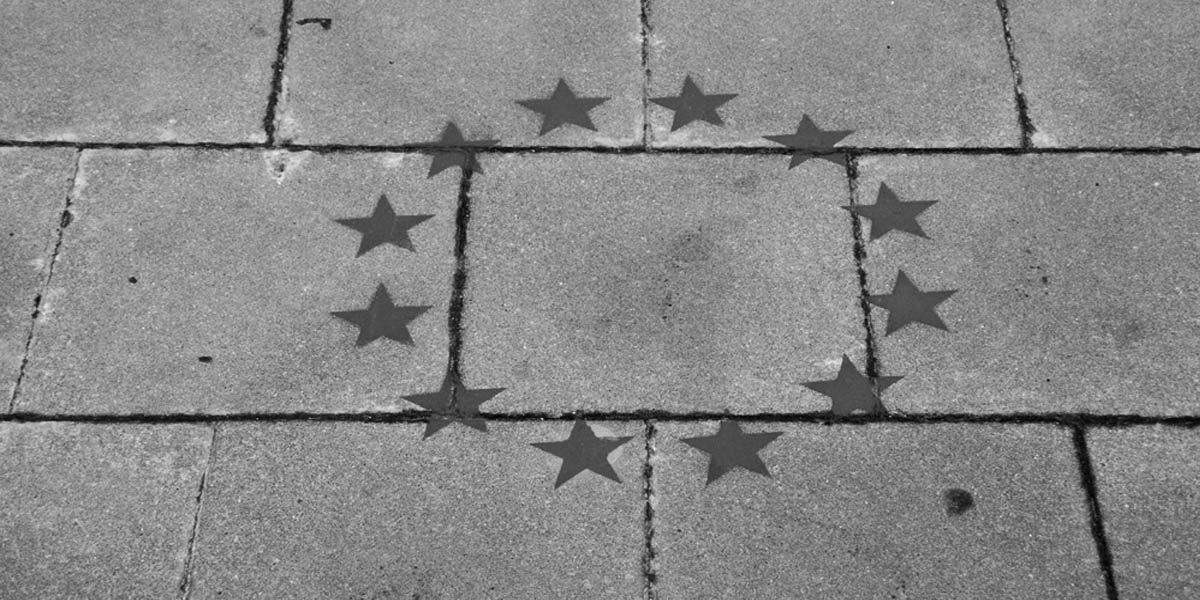European elections: Is Britain heading for the naughty step?
If students of communications were looking for an example of a successful, long-running misinformation campaign, they would have to look no further but to the unfortunate alliance between Eurosceptics and the British tabloid press. Together these two have, apparently successfully, built...
If students of communications were looking for an example of a successful, long-running misinformation campaign, they would have to look no further but to the unfortunate alliance between Eurosceptics and the British tabloid press.
Together these two have, apparently successfully, built the myth of a European superpower based in Brussels which is slowly taking over our daily life. The latest accusations include claims that ‘Brussels’ is trying to ban yogurts in schools and that European directives are responsible for the recent floods. Examples of such ‘Euromyths’ are so plentiful that the European Commission in the UK runs a regular blog refuting these stories, though unfortunately this site seems to enjoy a much lower hit rate than those on Britain’s yellow press (so dear readers, please share this page).
So let us imagine that, come May 22, the traditional low turnout at European elections is carried by mainly UKIP supporters, and Nigel Farage’s bizarre assembly of climate change deniers and self-described meteorologist win 26 per cent of the UK’s seats in the European Parliament, as predicted by a recent poll by YouGov for the Sun. Given past attendance rates of UKIP MEPs it is hard to say how many would actually show up to work, but let us, for the sake of argument, assume that the majority of the newly elected UKIP MEPs find their way to Brussels and Strasbourg. What then?
For those used to the bickering and verbal jousting of Westminster, the consensus-oriented approach of the European Parliament may come as a bit of a shock. Progress, although it happens slowly, is made through negotiations and compromise, which requires a certain ability to make friends with like-minded parties, much facilitated through belonging to one of the main political groups. Conservative MEPs have seen their influence melt away since David Cameron’s misguided decision to leave the European People Party and form the European Conservative and Reformist party with the then governing Czech Civic Democratic Party. They’ve been outvoted in every major vote. So who would UKIP’s bedfellows be?
Let’s look at the obvious candidates: Among them are the French Front National led by Marine Le Pen, which is tipped to win a quarter of the French vote in May and Geert Wilders’ Dutch Party for Freedom. However, Farage has already rejected an offer by Wilders to join a ‘European Alliance for Freedom’, a coalition between the French and Dutch Eurosceptics.
An inspection of European voting intentions, as recently undertaken by the American academic Cas Mudde, indicates that European right-wing and Eurosceptic parties, including Germany’s Alternative für Deutschland and Beppe Grillo’s Five Star movement will in total take no more than 4-6 per cent of the vote. So whilst this is still a worrying trend, it indicates that the collective impact of the Eurosceptics on European politics will be minimal.
Strength in the European Parliament comes, amongst other factors, through numbers, and this is one of the key reasons why a strong Eurosceptic British presence would be harmful for Britain’s role and influence in Europe. Whilst UKIP’s actual impact appears to at least during the next parliamentary term be negligible, a UKIP electoral success would increase Britain’s image as the ‘the naughty child no one wants to play with’ among those on the continent dedicated to a united Europe.
What does this mean for Labour?
This does not mean that pro-Europeans in the Labour movement can be complacent. UKIP’s success has increased because, albeit in an uninformed and shamefully bigoted manner, it raises questions that people want answers to.
It is right and understandable that Labour addresses immigration, but Ed Miliband needs to carefully choose the tone with which Labour contributes to the debate. Leadership means that sometimes you cannot give in to populism. When you are trying to win elections, short-term oriented rhetoric is inviting. But continental MEPs pay attention to what is being said in the UK. As a consequence of the harmful influence of the Conservative anti-European stand that would only be worsened by a UKIP success, Labour’s influence within the Party of European Socialists (PES) could be weakened if we are seen as picking up anti-European rhetoric.
Chuka Umunna’s recent flirtation with limiting inter-European immigration, during which he suggested that Labour may look into significantly limiting EU-wide freedom of movement, is a dangerous step in this direction. I am told that he spoke out of turn and this is thankfully not actually going to be official Labour policy, but when it comes to Europe, Ed needs to impose stronger discipline on statements coming from his shadow cabinet. He also needs to show his pro-European colours more clearly, or plainly Eurosceptic ideas will gain legitimacy and further compromise not only the party’s, but Britain’s strengths in Brussels.
Labour’s core instincts are internationalist and pro-European. We shouldn’t be ashamed of that, instead we should publically reach out and start making friends. If most of the members of our movement did the talking about Europe rather than letting the British press do it, we might even be successful in May.
